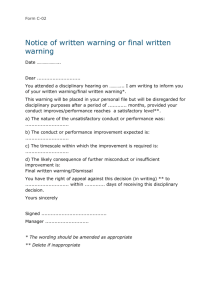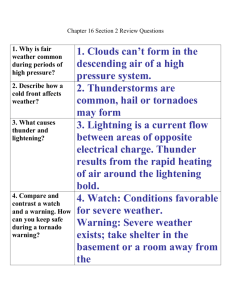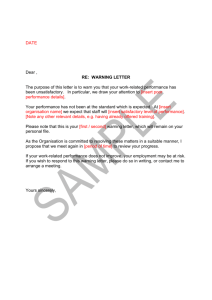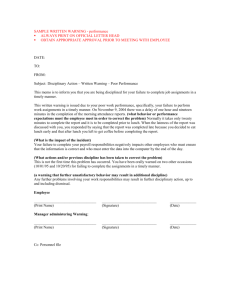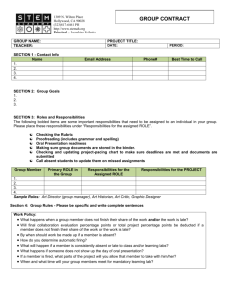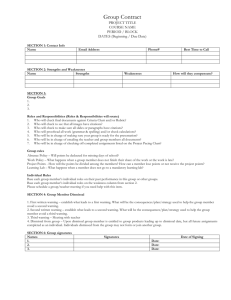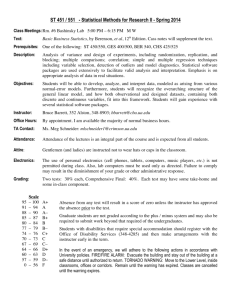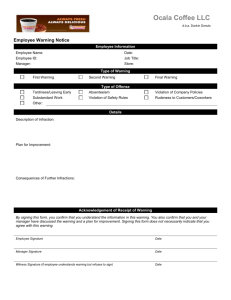KEELE UNIVERSITY Academic Warning Policy: Procedures for
advertisement
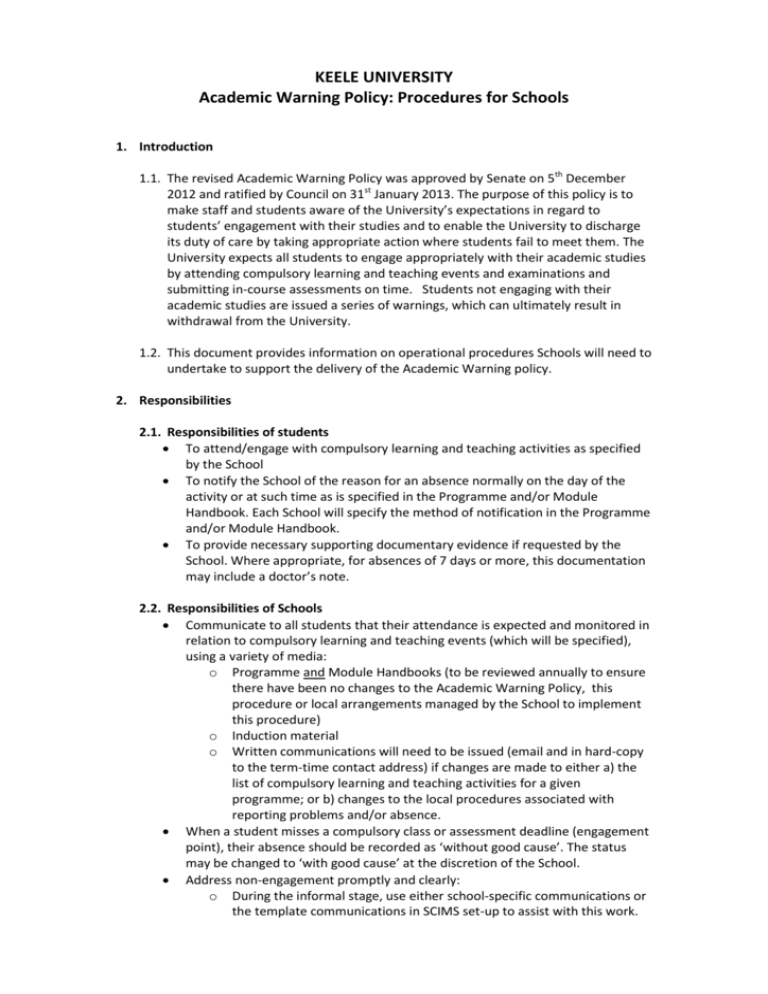
KEELE UNIVERSITY Academic Warning Policy: Procedures for Schools 1. Introduction 1.1. The revised Academic Warning Policy was approved by Senate on 5th December 2012 and ratified by Council on 31st January 2013. The purpose of this policy is to make staff and students aware of the University’s expectations in regard to students’ engagement with their studies and to enable the University to discharge its duty of care by taking appropriate action where students fail to meet them. The University expects all students to engage appropriately with their academic studies by attending compulsory learning and teaching events and examinations and submitting in-course assessments on time. Students not engaging with their academic studies are issued a series of warnings, which can ultimately result in withdrawal from the University. 1.2. This document provides information on operational procedures Schools will need to undertake to support the delivery of the Academic Warning policy. 2. Responsibilities 2.1. Responsibilities of students To attend/engage with compulsory learning and teaching activities as specified by the School To notify the School of the reason for an absence normally on the day of the activity or at such time as is specified in the Programme and/or Module Handbook. Each School will specify the method of notification in the Programme and/or Module Handbook. To provide necessary supporting documentary evidence if requested by the School. Where appropriate, for absences of 7 days or more, this documentation may include a doctor’s note. 2.2. Responsibilities of Schools Communicate to all students that their attendance is expected and monitored in relation to compulsory learning and teaching events (which will be specified), using a variety of media: o Programme and Module Handbooks (to be reviewed annually to ensure there have been no changes to the Academic Warning Policy, this procedure or local arrangements managed by the School to implement this procedure) o Induction material o Written communications will need to be issued (email and in hard-copy to the term-time contact address) if changes are made to either a) the list of compulsory learning and teaching activities for a given programme; or b) changes to the local procedures associated with reporting problems and/or absence. When a student misses a compulsory class or assessment deadline (engagement point), their absence should be recorded as ‘without good cause’. The status may be changed to ‘with good cause’ at the discretion of the School. Address non-engagement promptly and clearly: o During the informal stage, use either school-specific communications or the template communications in SCIMS set-up to assist with this work. The latter can be accessed from either the SAB or SCE screen (see ‘Operating Instructions’ provided by PAA). o During the formal stage, use the template communications in SCIMS (see below section 3 for details). Ensure that the necessary steps are undertaken during the informal stage (detailed below) so that cases of persistent non-engagement can be escalated to the formal process no longer than 4 weeks after the first example of nonengagement takes place. Keep robust and secure records of attendance and related communications, ideally on SCIMS, or at least on a secure shared drive on the University server. 2.3. Responsibilities of Planning and Academic Administration Create and maintain standard letters on SCIMS for each of the template communications. Issue Stage 3 Academic Warnings based on requests (with accompanying information) provided by the School. Withdraw students who have not complied with the requirements of the third and final Academic Warning, based on a request (with accompanying information) provided by the School. Undertake periodic audits of local records concerning attendance and related communications if they are not stored on SCIMS. Work with Schools to write technical specifications to support systems developments associated with attendance monitoring, to be undertaken by MIS. Review the Academic Warning Policy and related procedures at least every three years. 3. Formal Academic Warning Process 3.1. This section is based on the published Academic Warning Policy, with additional guidance. 3.2. Following the completion of its informal procedures, a School may issue a first formal academic warning. This should be done using the Stage 1 Formal Academic Warning Form. The stage 1 Formal Academic Warning will need to include details of the actions already taken by the School to secure the student’s engagement with her/his studies using informal procedures. In the case of Dual Honours or Major/Minor students, a copy of this warning will be sent to the student’s other principal School. The communication at each stage of the formal process should include a reference to the relevant section of the programme or relevant handbook where expectations concerning attendance at compulsory learning and teaching activities are set out. Use the template communication called ‘AcadWarnFormal1’ for the first warning (found in the list of standard letters accessed from the SCE screen in SCIMS). These templates have sections where schools-specific text can be typed in, such as details of non-engagement, remedial action the student is being asked to take. SCIMS has been set up so that for dual honours programmes both Schools are sent an email notifying that a formal warning has been sent to the individual student. See ‘Operating Instructions’ provided by PAA. 3.3. If a student does not adhere to the conditions of a first formal academic warning and engage appropriately with her/his studies within two working weeks of that warning being issued, the School may issue a second formal academic warning. This should be done using the Stage 2 Formal Academic Warning Form. In the case of Dual Honours or Major/Minor students, a copy of this warning should be sent to the student’s other principal School together with a copy of the first formal academic warning. Use the template communication called ‘AcadWarnFormal2’ for the second warning in the list of standard letters accessed from the SCE screen in SCIMS. 3.4. First and second formal academic warnings may only be issued by the Head of School or her/his nominee acting on her/his behalf. 3.5. If a student does not adhere to the conditions of a second formal academic warning and engage appropriately with her/his studies within two working weeks of that warning being issued, a School may ask the Head of Student Records and Examinations to issue a third and final formal academic warning. This should be done using the Stage 3 Academic Warning Request Form. A stage 3 final Formal Academic Warning will remain in force for the remainder of the academic year in which it is issued, or such other appropriate period as the Head of School or her/his nominee acting on her/his behalf may specify, subject to the agreement of the Head of Student Records and Examinations. 3.6. A request for a third and final academic warning may only be made by the Head of School or her/his nominee acting on her/his behalf. Copies of the first two formal academic warnings will not need to be sent to PAA with the request form, providing the two formal warnings were issued via SCIMS. Schools that record attendance on local drives and not on SCIMS may be asked to provide evidence of non-attendance. Use the template communication called ‘AcadWarnFormal3’ to request a third warning, in the list of standard letters accessed from the SCE screen in SCIMS. In the case of Dual Honours or Major/Minor students, a copy of this request form should be sent to the student’s other principal School using the SCIMS email set up by PAA (see ‘Operating Instructions’). 3.7. All formal warnings will include the reason for the warning being issued and will clearly state what action the student is required to take in order to engage appropriately with her/his studies and to adhere to the conditions of the warning. The consequences of failing to adhere to those conditions will also be clearly stated. 3.8. If a student does not adhere to the conditions of a third and final academic warning s/he will be required to withdraw from the University by the Head of Student Records and Examinations. It is the responsibility of the School that requested the third and final academic warning to be issued to inform the Head of Records and Examinations if a student has not adhered to the conditions of that warning. 4. Dealing with intermittent non-engagement 4.1. In some cases students may abide by the conditions of a formal warning and then at a later date begin to dis-engage again. In these circumstances, an informal communication should be sent to them advising them that they risk being given another formal warning. A template communication called ‘AcadWarnInformalRepeat’ can be used and can be found with the other templates accessed from the SCE screen. If the student does not respond and continues to miss classes and other assessment dates, another formal warning should be issued at the next stage in the process. For example, if the student has already been given a first warning, then a second warning should be issued. 5. Cases of students failing to engage with both disciplines associated with a dual honours programme. 5.1 Where a student is failing to attend classes in more than one discipline, individual schools will address non-engagement relating to the modules they manage, but the other School will be kept informed of formal warnings (see ‘Operating Instructions’). The timing of these interventions by the Schools may differ and a student may be at different stages in the formal process for each discipline. If a withdrawal notice is issued, the other School will be informed. 6. Key Contacts 6.1. If you have any queries concerning the operation of the Academic Warning Policy or the related procedures, please contact: Laurence Fuller – Head of Student Records and Examinations l.fuller@keele.ac.uk or ex. 34007 Jo Hicks – Deputy Head of Student Records and Examinations j.hicks@keele.ac.uk or ex. 34218
